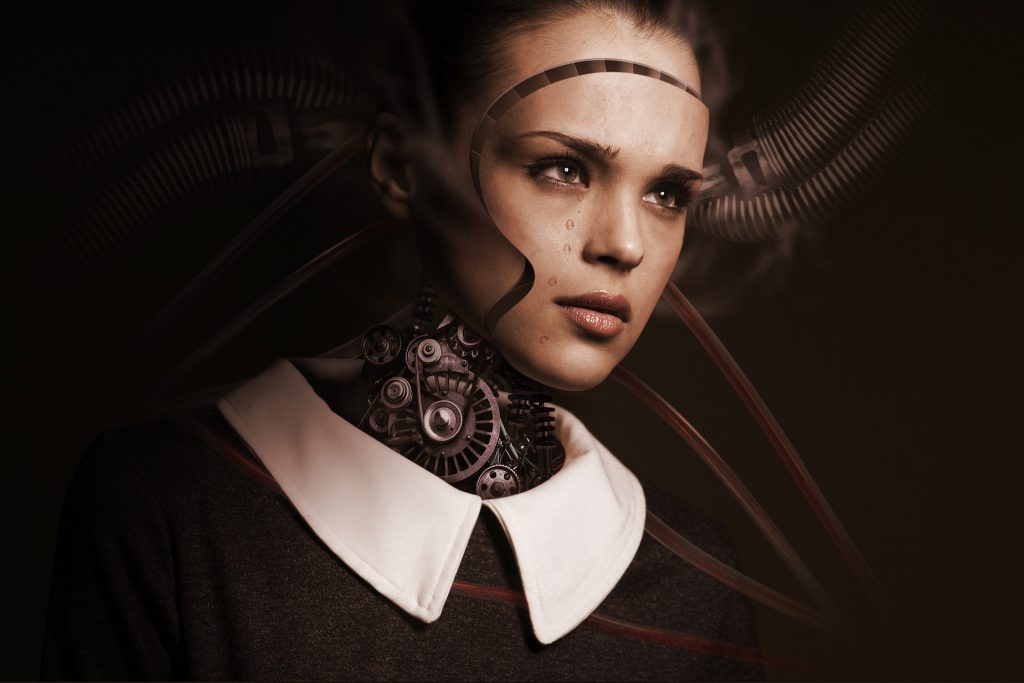 “The speed of current breakthroughs has no historical precedent… it is disrupting almost every industry in every country. And the breadth and depth of these changes herald the transformation of entire systems of production, management, and governance.” Klaus Schwab, Executive Chairman, WEF.
“The speed of current breakthroughs has no historical precedent… it is disrupting almost every industry in every country. And the breadth and depth of these changes herald the transformation of entire systems of production, management, and governance.” Klaus Schwab, Executive Chairman, WEF.
If the Third Industrial revolution used electronics and information technology to automate production, the Fourth Industrial Revolution can be described as ‘the advent of “cyber-physical systems” involving entirely new capabilities for people and machines.
The Fourth Industrial Revolution represents entirely new ways in which technology becomes embedded within societies and even our human bodies.
Examples include genome editing (a type of genetic engineering), new forms of machine intelligence (artificial intelligence), breakthrough materials and approaches to governance that rely on cryptographic methods (Cryptography is associated with the process of converting ordinary plain text into unintelligible text and vice-versa). Cryptography not only protects data from theft or alteration but can also be used for user authentication.
Virtual Assistants are already a part of the Fourth Industrial Revolution! We use the latest technology on a daily basis to assist our clients, and ourselves in business!
In an article called “21st century skills: surviving the 4th Industrial Revolution” by Mithun Kamath, CEO Arc Sills, he outlines the disconnect between 20th century education and 21st century skills-based world. He reckons it is vital to help the next generation make the most of their potential.
While it is impossible to predict the hard skills companies will require, there are no doubts that the 21st century is focusing on transferable soft skills that can be used across various industries.
We need to start to be realistic and not idealistic about the changes and challenges the world is facing. The sooner we are ready, the quicker we will be able to overcome the obstacles faced by an uncertain future, we will be able to change with the times.
While technology is making great inroads in streamlining and automating tasks, truth is many of these tasks are fewer than one might think.
Stanford Professor Andrew Ng has a good rule for determining which roles can be automated, “If a typical person can do a tedious task with less than one second of thought, we can probably automate it using AI either now or in the near future.”
Jobs that require the same sort of Input A to Output B, are likely to be automated according to Bernard Marr in “7 Job Skills of The Future (That AIs And Robots Can’t Do Better Than Humans). Typically, these could be proofreading, telemarketing, receptionist, bookkeeping clerks, delivery couriers, machinists or retail salespeople.
Fortunately, many roles in the workforce require human capabilities like emotional intelligence, communication, creativity, strategic thinking, the asking of questions, and by no means lastly, dreaming. People using soft skills.
 Soft skills are the currency of the future! Soft skills are a combination of social and emotional intelligence quotients, that enable people to navigate their environment, perform well, work well with others. Softs skills are people skills, social skills, communication skills, character or personality traits, attitudes, career attributes.
Soft skills are the currency of the future! Soft skills are a combination of social and emotional intelligence quotients, that enable people to navigate their environment, perform well, work well with others. Softs skills are people skills, social skills, communication skills, character or personality traits, attitudes, career attributes.
The Collins English Dictionary defines the term “soft skills” as “desirable qualities for certain forms of employment that do not depend on acquired knowledge: they include common sense, the ability to deal with people, and a positive flexible attitude.”
People will achieve their goals by using their soft skills together with complementing hard skills.
Automated tools can streamline menial tasks, but you will still need a human to give the task relevance and meaning. Any job requiring strategic thinking is likely to be safe, and by improving your soft skills you can help “robot-proof” your job.
One quality a robot or AI is going to be hard pressed to possess is imagination. Imagination and dreaming are not programmable skills!
While more and more entrepreneurs lead the revolution to disrupt traditional ideas and challenge 20th century workplace mentality, as part of the 4th Industrial Revolution, a vital contributing factor to their success are Virtual Assistants (living, breathing person).
 Virtual Assistants (also known as VAs) are independent contractors operating remotely, who provide administrative skills to clients. Online assistance.
Virtual Assistants (also known as VAs) are independent contractors operating remotely, who provide administrative skills to clients. Online assistance.
Virtual Assistants are often linked to artificial intelligence tools like Google Assistant, Siri, or Alexa. However, a virtual assistant can also be a living, breathing person. They are a person that you don’t interact with face-to-face. In business terms, a virtual assistant helps you with your day-to-day tasks while working remotely. For example, you might have a business based in London or France but hire a virtual assistant that is located in Cape Town.
The Virtual Assistant Industry is still considered to be in its infancy in South Africa, however globally the Virtual Assistant Industry is predicted to reach $1.8 billion by 2021.
To be a part of the Fourth Industrial Revolution Virtual Assistants need to ensure their soft skills complement their profession!
Talk to the team at VCS – More Time for YOU – we are Executive Virtual Assistants that can assist you! Fill out our contact form HERE!
